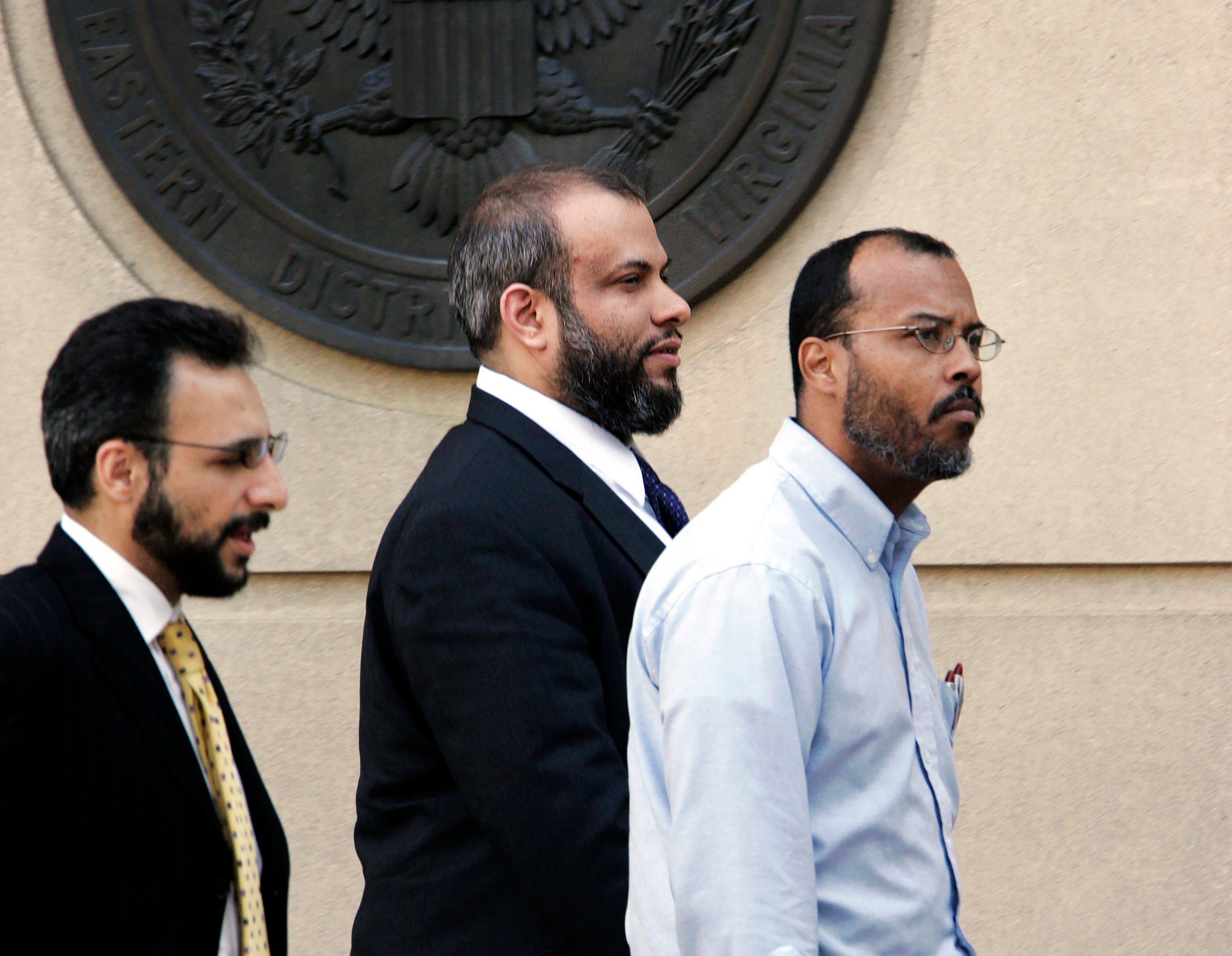Some convictions overturned in terrorism case against Muslim scholar from Virginia
A judge has overturned a conviction carrying a life sentence for an Islamic scholar from Virginia who was found guilty of soliciting treason after the Sept. 11 attacks for encouraging followers to fight against the U.S. in Afghanistan

Your support helps us to tell the story
From reproductive rights to climate change to Big Tech, The Independent is on the ground when the story is developing. Whether it's investigating the financials of Elon Musk's pro-Trump PAC or producing our latest documentary, 'The A Word', which shines a light on the American women fighting for reproductive rights, we know how important it is to parse out the facts from the messaging.
At such a critical moment in US history, we need reporters on the ground. Your donation allows us to keep sending journalists to speak to both sides of the story.
The Independent is trusted by Americans across the entire political spectrum. And unlike many other quality news outlets, we choose not to lock Americans out of our reporting and analysis with paywalls. We believe quality journalism should be available to everyone, paid for by those who can afford it.
Your support makes all the difference.A judge has overturned a conviction carrying a life sentence for an Islamic scholar from Virginia who was found guilty of soliciting treason after the Sept. 11 attacks for encouraging followers to fight against the U.S. in Afghanistan.
The ruling issued Thursday from U.S. District Judge Leonie Brinkema overturns three of the 10 counts of conviction against Ali Al-Timimi. But she upheld other counts that could leave him with decades of prison time beyond the 15 years he already served.
Al-Timimi, 60, was indicted in 2004, and convicted and sentenced in 2005. Prosecutors said the U.S.-born scholar, who grew up in the nation's capital and had earned his doctorate in computational biology shortly before his arrest, enjoyed rockstar status among his small group of followers.
At a private gathering a few days after the Sept. 11 attacks, Al-Timimi told his followers — some of whom trained for jihad by playing paintball in the Virginia woods — that an apocalyptic battle between Muslims and the West loomed, and that Muslims were obliged to defend the Taliban if they had the ability to do so, according to trial testimony.
Several members did travel as far as Pakistan and received military training from a militant group called Lashkar-e-Taiba, but none ever actually joined the Taliban.
After Thursday's ruling from Brinkema, what happens next for Al-Timimi is unclear. He was released from prison in 2020 and placed on home confinement, partly because of the coronavirus pandemic and partly because his appeals have been bogged down in delays for nearly 20 years.
The 4th U.S. Circuit Court of Appeals in Richmond still has not heard Al-Timimi's initial appeal of his conviction, but it's expected the appeal can now proceed. Among other issues, Al-Timimi's lawyers have contended that his conviction violates the First Amendment by punishing him for his speech.
Al-Timimi would presumably remain on home confinement while the appeal is heard unless prosecutors or the judge sought to have him returned to prison.
The counts that were overturned relate to whether they were based on an unconstitutionally vague “crime of violence.” The issue stems from Supreme Court cases over the last nine years that have affected many criminal cases across the country.
Prosecutors had contended the convictions should stay in place, but Brinkema said soliciting treason is not inherently a crime of violence and could be accomplished “through aiding and comforting the enemies, which does not necessarily require the use, attempted use or threatened use of physical force.”
She rejected allegations that prosecutors failed to disclose information that the government sought to use another northern Virginia cleric, Anwar al-Awlaki, against Al-Timimi as an informant, and that al-Awlaki tried unsuccessfully to lure Al-Timimi into illegal conduct as part of a government sting.
Al-Awlaki later left the U.S. and became a leader in al-Qaeda before he was killed in a U.S. drone strike.
Prosecutors have long argued that they disclosed everything they were supposed to disclose about the meeting between the two clerics. Brinkema, in her ruling Thursday, confirmed that she reviewed the documents in question years ago and had also concluded that the defense was not entitled to any of the information because it did nothing to suggest al-Timimi's innocence.
Neither the U.S. Attorney's Office for the Eastern District of Virginia nor Al-Timimi's lawyers responded to emails seeking comment Friday.